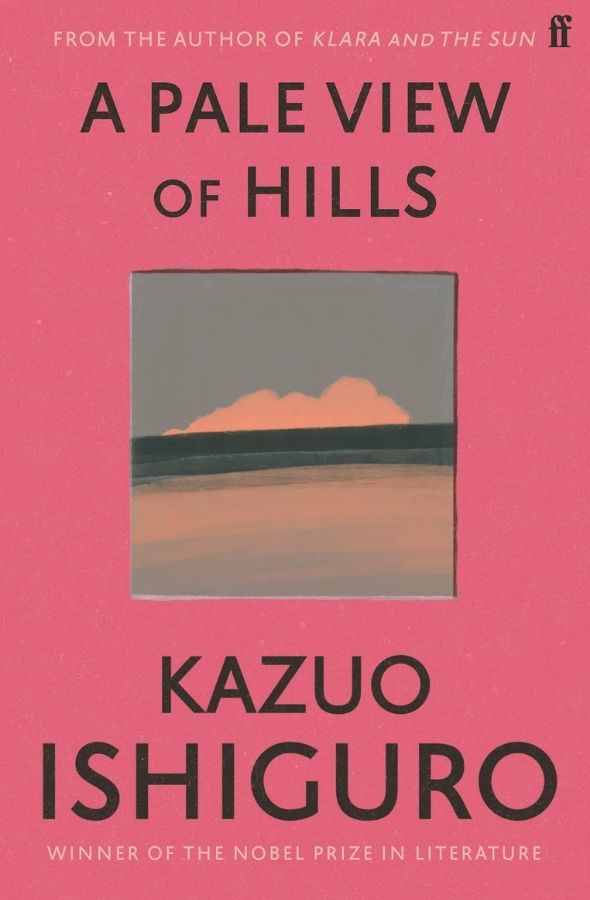Touching and odd, Ishiguro’s debut work stands as an interesting short novel, marking the beginning of a long and excellent writing career.
A Pale View of Hills follows Etsuko, a middle-aged Japanese mother who recounts her past whilst living in Britain. As she copes with the recent suicide of her eldest daughter, Keiko, Etsuko reflects on her time in Japan to her younger daughter, Niki.
The more Etsuko divulges about her past, the more murky and unclear the details become, as there is a clear distinction between the past and the present (marked, rather unsubtly, in how Niki was chosen as a ‘modern’ name to clash against the dated nature of Keiko’s name). The biggest focus of Etsuko’s past is not the life she shared with her first husband and an unborn Keiko, but rather her strange friend Sachiko, who had a strange daughter and ended up leaving Japan with an American man.
Without spoiling too much, I can assert that the novel is quite strange; presenting gaps and oddities in how Etsuko recounts people’s behaviour, as well as much of her life in between her memories and present self being unspoken of. It feels almost purposely vague, which can be a bad thing in the eyes of certain readers, but I think this is an intentional choice to blur the line between who Etsuko and Sachiko are.
It is believable that Etsuko, through her trauma and the fog of the past, applies her bad memories and wrongdoings onto the image of Sachicko, a real friend that she once had in Japan. Given how she opts not to tell Niki details about certain parts of her life, there is the potential that her strong repression of bad experiences, memories, and immoral actions of her own, are shifted onto the image of Sachiko and her daughter. In essence, Etsuko is unable to cope with her past life and seeks to abstract or misdirect it where possible.
Alternatively, Sachiko and her daughter do not exist, serving only as blameless ways for Etsuko to tell Niki about the past. Made up characters, a story within a story, basically.
I suspect this is the more true intention, and buying into it results in a better expansion of Etsuko’s character. Readers who take this stance can observe the flaws within Etusko’s mothering skills, better understanding why she places such a chasm between her repressed past with Keiko and the modern life she shares with Niki and her new husband. It’s a clear motif of repression, and perhaps an awareness of how her choices and actions as a mother resulted in her daughter’s suicide, but still contains an uncertainty about whether Etsuko accepts her role in her daughter’s miserable end.
It sounds like a great twist and mystery, but I think it falls a little short in how this theory is neither clear, nor a go-to assumption at any point during the story. There is nothing that really hints the reader towards this other than sheer suspicion about the parallels between Etsuko and Sachiko’s stories. I suppose that allows for natural discovery and theorising, so it may be for the better. Ultimately, this outcome would explain why Sachicko is such a strange and inconsistent character, often acting as a foil to how Etsuko remembers her past self.
There are further links that support the theory, as well as some points that do not. Like I said, it is quite strange and almost purposely vague about who Sachiko and her daughter are, if they ever existed at all. It’s a good mystery, just not executed as cleanly as it could have been.
A Pale View of Hills, for the most part, is a story of loss and change. The loss is obvious, but the idea of change originates from Etsuko and Sachicko both leaving Japan and marrying foreign men after previously having children with other men. Despite its vagueness, the jumps between the present and the past enable readers to fill in the blanks with their imagination, and continually pick up on the suspicious parallels between the two women and their daughters.
Overall, it’s a good read, but marred by that mystery that is neither wrong nor concrete enough to believe in. I think it was a promising debut for Ishiguro, and he certainly refined his work going forward. A Pale View of Hills does have some memorable moments, but I think it simply tries too hard to be more deep than it really is.
That aside, I’d still recommend it if anyone likes the premise, or if you happen to be a big fan of Ishiguro. It isn’t his best work, but still is a fun story to theorise about and explore the two main characters of.

Leave a Reply